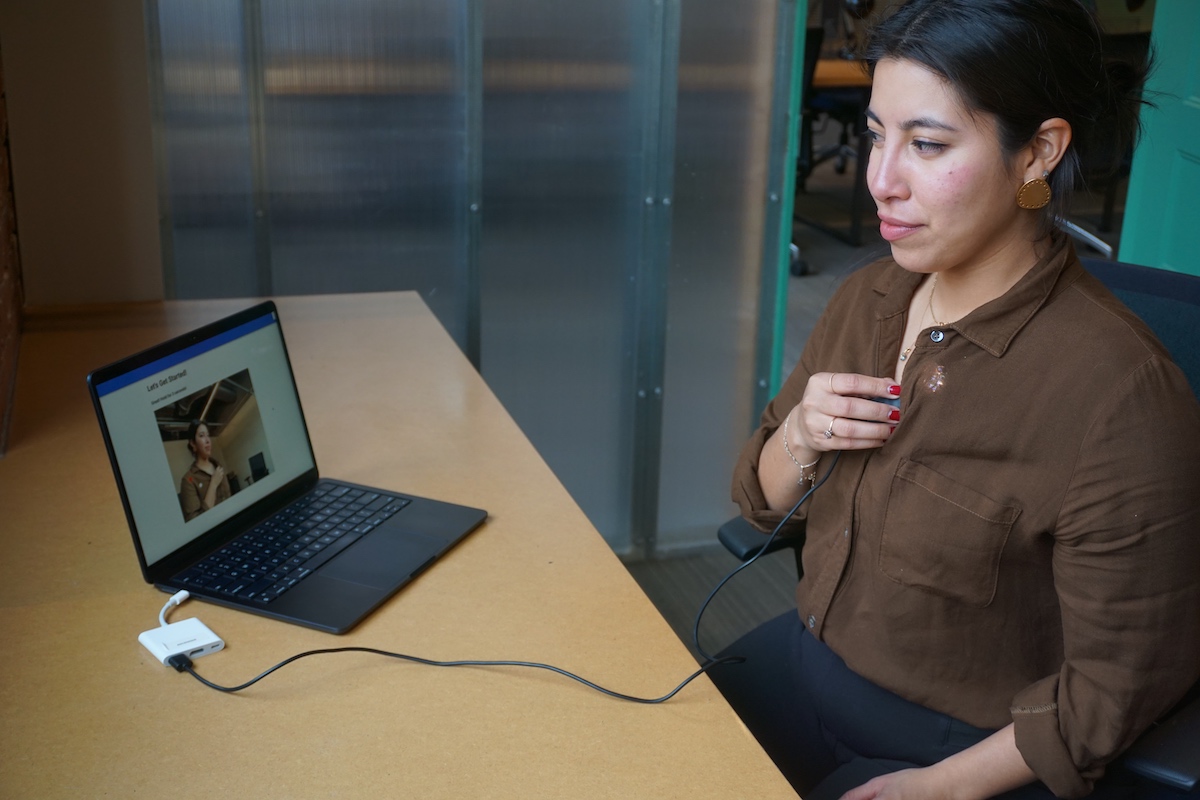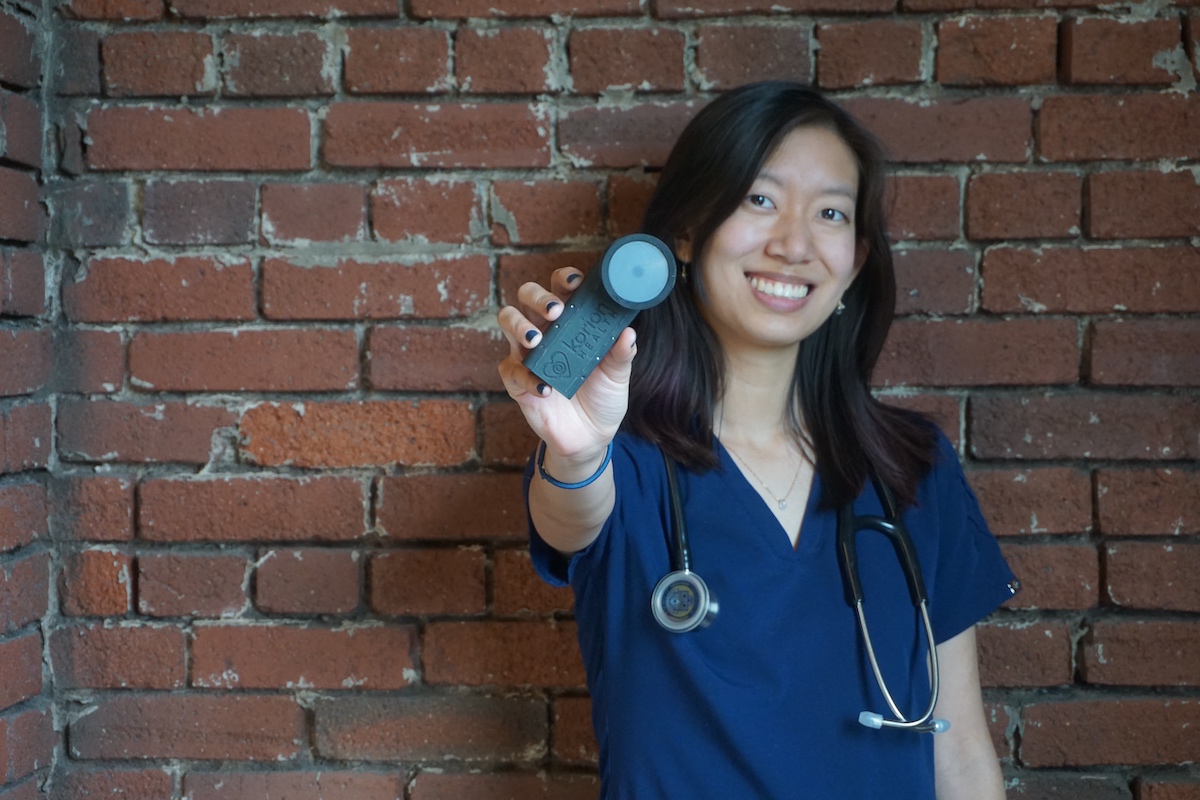Contrary to stereotypes about Asian American parents wanting their children to become doctors, Korion Health CEO and cofounder Anna Li points out that that community, along with other marginalized populations, still faces its share of disparities when it comes to healthcare access. Looking back on her own childhood, Li said language barriers and cultural differences often left her feeling unheard and wishing she’d had more access to resources.
Now, she’s working on a solution: Li and her fellow cofounders are hoping the Pittsburgh company’s electronic stethoscope will empower users to perform heart and lung screenings in the comfort of their own homes.
“This is just a basic screening you get when you go to the doctor’s office and they use a stethoscope to listen to your heart and lungs,” Li said, who is an . “Going through medical school during a pandemic, so many of the visits that I saw were through telemedicine, and I realized that even though that reaches a lot of people, you still can’t really do a full physical exam from home. And I think that was very limiting.”
Li hopes the electronic stethoscope, which records heart and lung sounds, could be a good option for individuals who struggle to make it to regular doctor appointments due to logistical reasons such as a lack of childcare or discomfort around medical professionals. Because Li plans to work in emergency medicine herself, she said, much of what she’s observed in emergency rooms with regard to patients coming in with conditions that could’ve been prevented if they were diagnosed earlier, made heart and lung screenings an area of interest.
“Heart disease affects so many people — it’s the number one killer — but according to the American Heart Association, it’s actually 80% preventable through early screenings and interventions,” Li said. “So I think the ability to make an impact there was a need was very tempting.”

(Courtesy photo)
Although the company was founded only in 2022, it has caught the notice of a host of respected startup-boosting programs: So far it’s participated in the Ascender, Blast Furnace and Life X accelerators. Away from the Steel City, Korion Health is a member of a Maryland-based StartUp Shell and was recently accepted into StartOut, a student-run startup incubator and a JPMorgan-supported initiative for LGBTQ entrepreneurs, respectively.
“We have been very lucky to be surrounded by a lot of great mentors and resources,” Li said.
When it comes to resources measured in dollars and cents, Korion Health has raised $35,000 in preseed funding, $33,000 from a HoneyComb Credit campaign, and is currently in the process of pursuing a $1 million raise in a seed round. Moving forward, the company is working toward FDA approval and as of April 2023, the company applied for a provisional patent. Korion Health is still a small operation with three founders, interns and part-time employees.
Li hopes the company will grow to fill in some of the gaps that often prevent patients from receiving care.
“We’re supposed to be one of the most developed countries in the world but it seems like the spectrum of who gets healthcare is very uneven,” the CEO said. “[But] I do think there’s a demand for more patient-empowering healthcare and for more accessible healthcare, and if there’s anything I can do to support people, I think this is really a problem that we need to solve in our generation.”
Atiya Irvin-Mitchell is a 2022-2024 corps member for Report for America, an initiative of The Groundtruth Project that pairs young journalists with local newsrooms. This position is supported by the Heinz Endowments.Join our growing Slack community
Join 5,000 tech professionals and entrepreneurs in our community Slack today!
Donate to the Journalism Fund
Your support powers our independent journalism. Unlike most business-media outlets, we don’t have a paywall. Instead, we count on your personal and organizational contributions.

National AI safety group and CHIPS for America at risk with latest Trump administration firings

How AI is infiltrating labor union contracts, in Pittsburgh and beyond

How women can succeed in male-dominated trades like robotics, according to one worker who’s done it



